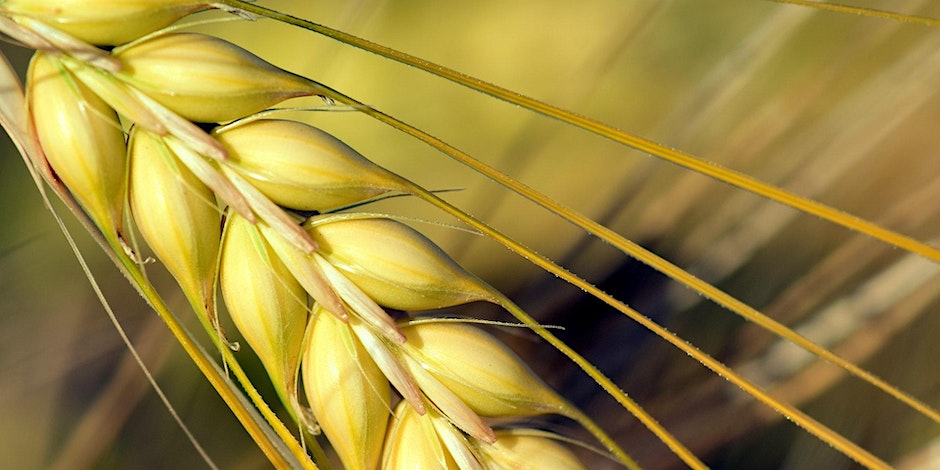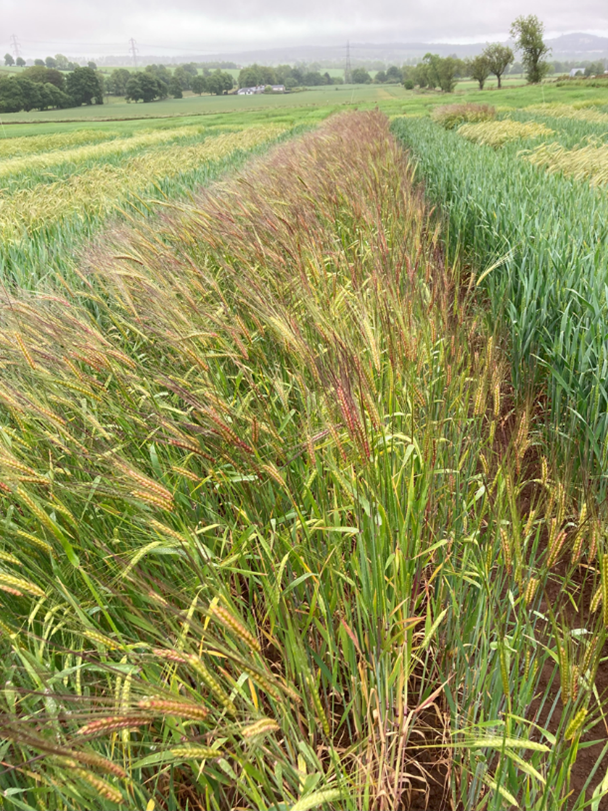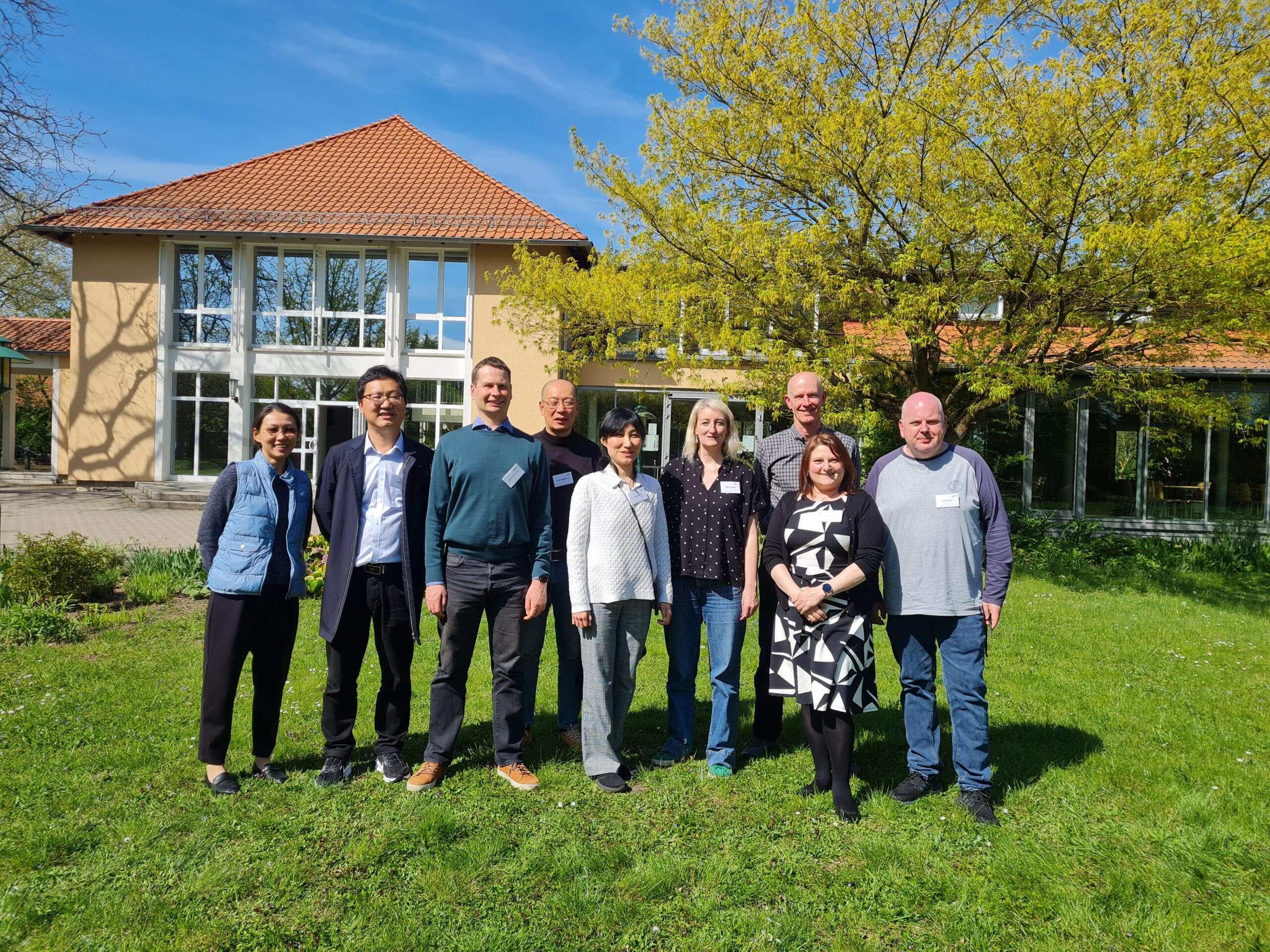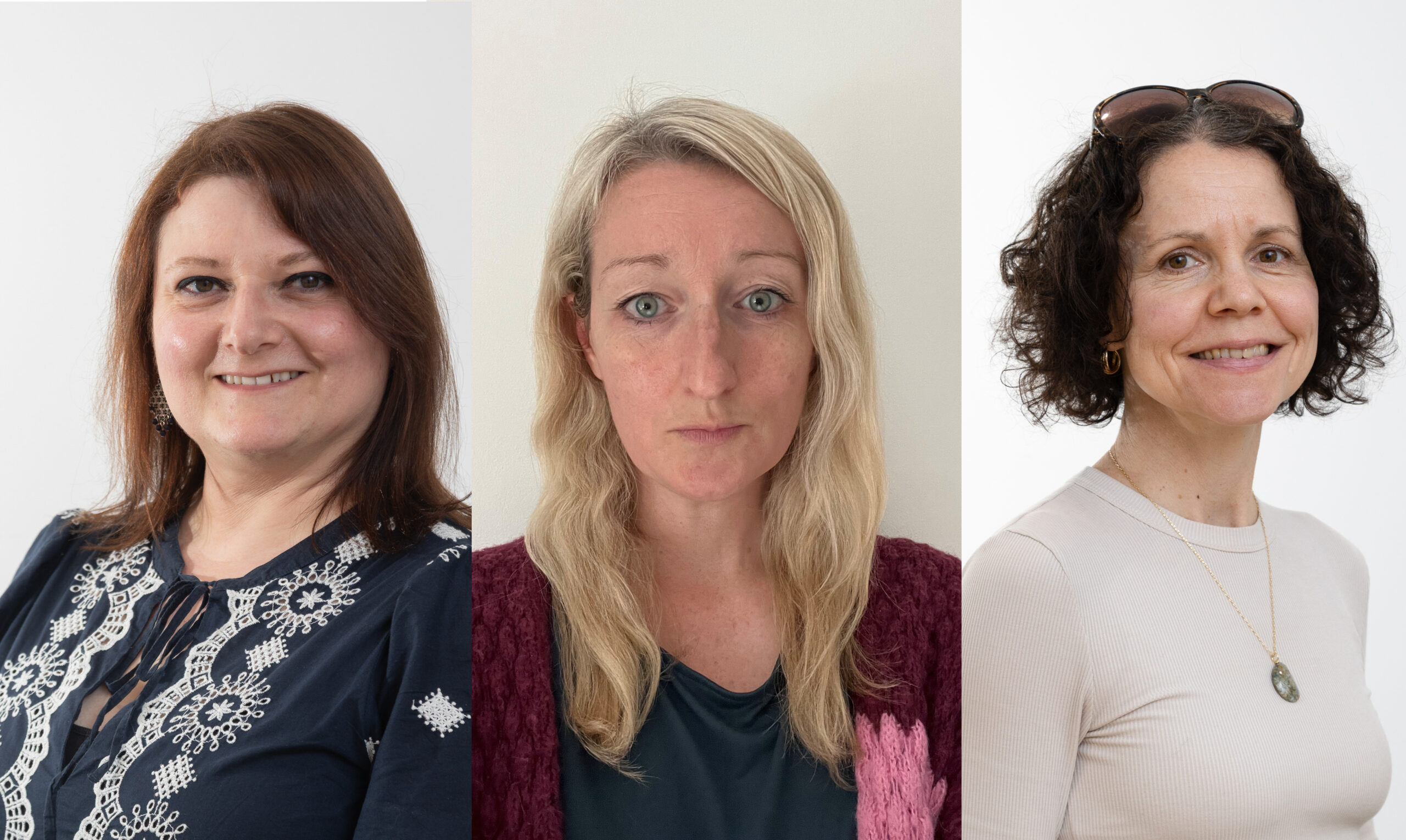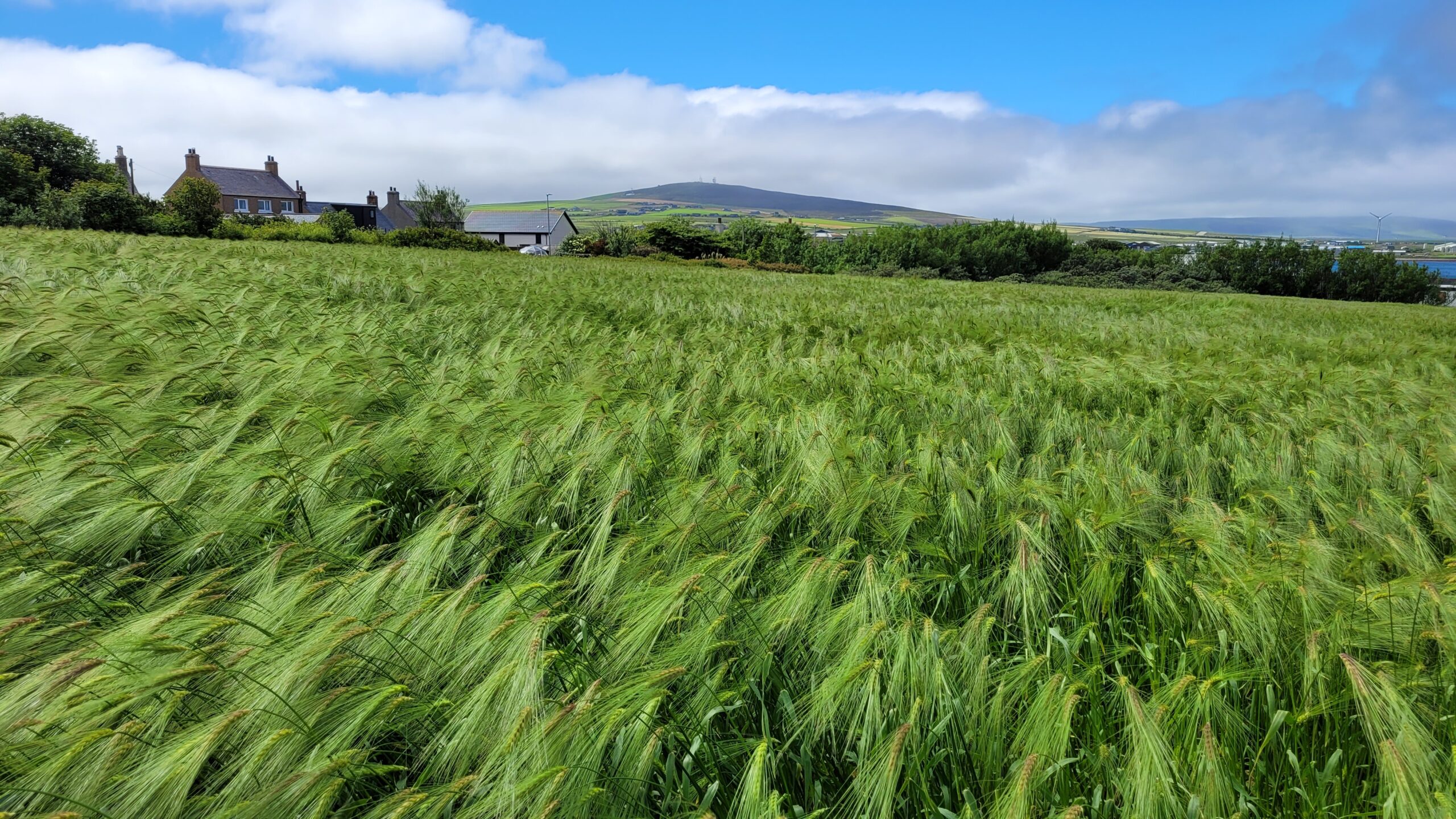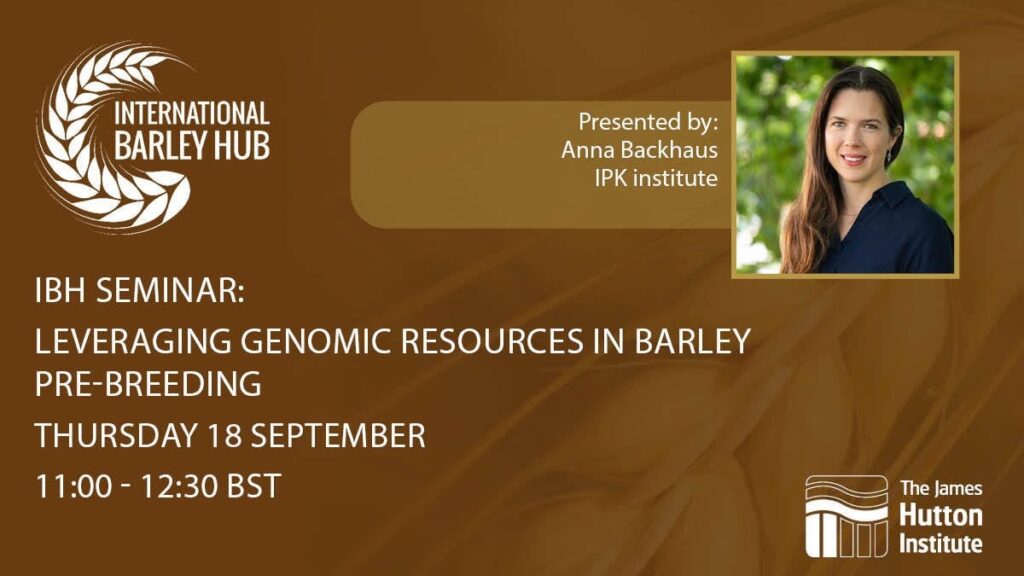
When: Thursday 18 September 2025 | 11:00 – 12:30 BST
The International Barley Hub is pleased to announce the next seminar in its 2025 series, run by leading barley scientists and industry experts. This seminar will be presented by Anna Backhaus (Head of Resources, Genetics and Reproduction, Leibniz Institute of Plant Genetics and Crop Plant Research (IPK), Germany)
Summary:
While breeding is overall a conservative trade, with the same principles being applied since decades, incremental advances in all steps of the breeding pipeline have revolutionized this field over the past century. In pre-breeding, each cycle starts with the identification of diverse germplasm for a given target. While this used to be done via phenotypic selection and passport data, today genomic tools are aiding the more precise characterisation of diversity, and targeted selection of genebank accessions. Here, the recent integration of genome wide scans and associations based on available climatic and heritage data has changed how we can access and select genebank accessions. Furthermore, the availability of sequencing data from entire genebanks is also allowing new pathways for selection of accessions, driven also by bioinformatic developments in k-mer analysis. The second phase of pre-breeding (post crossing) has also benefited from genomic tools, increasing the precision of introgressions, their selection, and potentially overcoming crossing barriers, especially in the work with crop wild relatives. Over the coming years, the systematic implications of the newly unlocked genetic insights in genebanks and pre-breeding will be the key challenge.
Speakers bio:
Anna Backhaus recently joined the IPK institute in Germany as group leader for Resources Genetics & Reproduction (RGR) in the genebank department. In this capacity, she oversees the management and regeneration of IPK’s ex situ collection of legume, cereal, vegetable and medicinal plants. Her work there will also delve into advancing the use of genomic data in genebanks.
Anna earned her PhD from the John Innes Centre, after which join ICARDA (Morocco) as a post-doctoral, working on pre-breeding for cereals with landraces and especially crop wild relatives.
